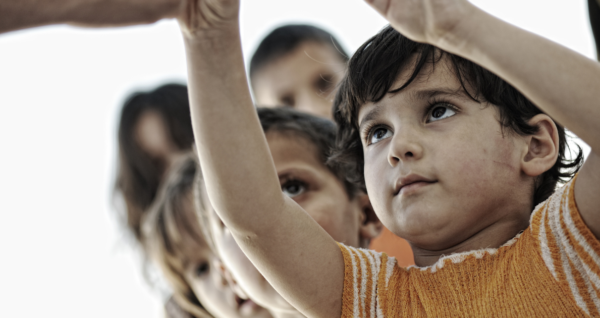Yijie, a Sanctuary for Families client, shares how the Economic Empowerment Program helped her reclaim her humanity.
The following speech was delivered by Yijie, a Sanctuary for Families client, at the Spring 2016 Economic Empowerment Program (E.E.P.) graduation. Of the 43 graduates in this year’s spring class, four women were selected by class vote to share their stories with the audience.
This is Yijie’s story.
I am honored to have the chance to speak with you on this special occasion. I would like to start by saying thank you to Sanctuary for Families and the Economic Empowerment Program (E.E.P.) Department for this life changing opportunity. I would also like to give a special thanks to Angelo, Sarah, Maggie, Jessica, Saloni and Eve for their dedication to this program.
Above all, I want to say congratulations to my classmates in the Office Operations Workshop (O.O.W.) program. We have worked so hard and learned so much over these past five months. It has been difficult at times, but all of us here are no strangers to difficulty. All here have been victims of domestic violence.
My participation in this program was not only an opportunity for me to improve myself professionally as an immigrant in a new country, but also a necessary step I needed to take in the process of reclaiming my humanity.
After two years of being a victim of domestic violence, I finally found the courage to leave my abuser. This is difficult for anyone in this situation. It is even more difficult when you are a stranger in a strange land. I felt like I was at the mercy of a system and a city I did not understand. As a single woman with no children, managing the domestic violence system was a constant challenge.
Even though I was free from abuse, my freedom was a harsh experience of shelter and struggle – I lost hope and wanted to give up. But I didn’t. I kept going.
This program has allowed me to improve myself as well as my professional skills. I was a professional in my native country of China. Now I feel confident and ready to be a professional again in America. Most importantly, I feel human again. I am not a victim of domestic violence. I am a survivor of domestic violence. I have taken my life back.
Again, I thank everyone at Sanctuary for Families for giving us this opportunity. Your work is so important to so many. I wish my classmates the best of luck in their personal and professional lives. Congratulations again to all of you!
Learn more about the Economic Empowerment Program’s success here.


